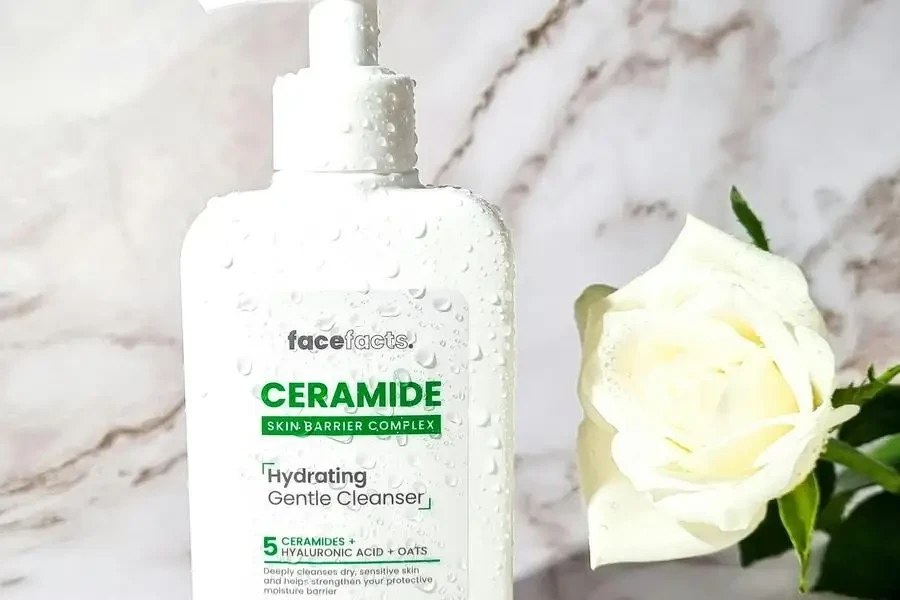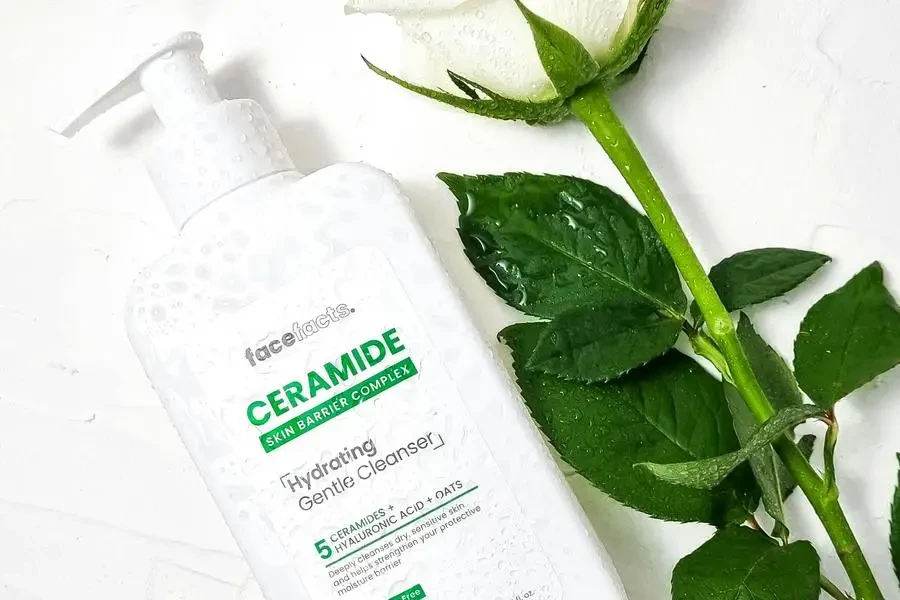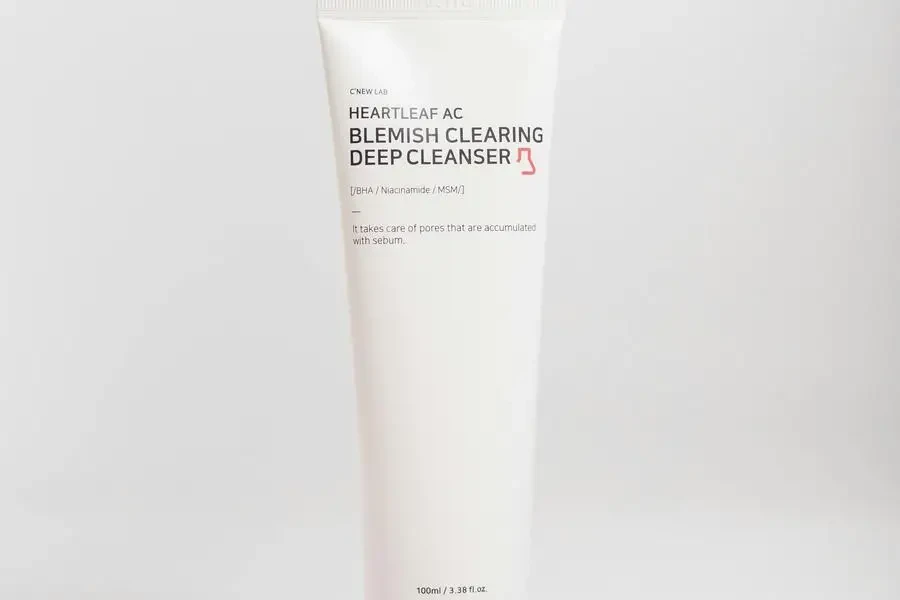The face wash market, particularly for oily skin, is experiencing significant growth and transformation. With increasing consumer awareness and evolving preferences, the demand for specialized face wash products is on the rise. This article delves into the market dynamics, key statistics, and competitive landscape of face wash for oily skin, providing valuable insights for business buyers.
Table of Contents:
– Market Overview
– Rising Demand for Natural and Organic Ingredients in Face Washes
– Technological Innovations Enhancing Face Wash Efficacy
– Customization and Personalization Trends in Skincare
– The Growing Popularity of Multi-Functional Face Washes
Market Overview

Key Market Statistics and Growth Projections
The face wash market is projected to grow by USD 8.38 billion from 2023 to 2028, with a compound annual growth rate (CAGR) of 5.46% during this period. This growth is driven by several factors, including rising per capita income, changing purchase behaviors, and an increasing focus on skincare. According to a professional report, the market’s expansion is also fueled by the growing prevalence of facial skin-related issues and heightened beauty consciousness among consumers.
Consumer Demographics and Preferences
Consumer preferences are shifting towards more specialized and effective skincare solutions. The demand for face wash products tailored for oily skin is particularly notable. This trend is influenced by the increasing awareness of the benefits of using products specifically designed to address oily skin issues, such as acne and excess sebum production. Additionally, there is a growing preference for organic and natural face wash products, as consumers become more mindful of the ingredients they apply to their skin. This shift towards clean and sustainable skincare solutions is expected to drive further growth in the market.
Competitive Landscape and Major Players
The face wash market is highly competitive, with numerous key players vying for market share. Leading companies such as Alchemee LLC, Amway Corp., Beiersdorf AG, Bloomtown Ltd., Christian Dior SE, Emami Ltd., Helios Lifestyle Pvt Ltd., Himalaya Global Holdings Ltd., Honasa Consumer Pvt. Ltd., Johnson and Johnson, Kao Corp., Khadi Natural, L’Oreal SA, Mountain Valley Springs India Pvt. Ltd., NAOS, Natura and Co Holding SA, Oriflame Cosmetics S.A., Shiseido Co. Ltd., The Body Shop International Ltd., The Estee Lauder Companies, The Honest Co. Inc., The Procter and Gamble Co., and Unilever PLC are prominent players in the market. These companies are continuously innovating and expanding their product portfolios to cater to the evolving needs of consumers.
The competitive landscape is characterized by the introduction of new products, strategic partnerships, and mergers and acquisitions. For instance, the increasing adoption of e-commerce platforms has enabled companies to reach a broader audience and offer a wider range of products. Additionally, the rise in clean and sustainable packaging is becoming a significant trend, as consumers demand more environmentally friendly options.
In conclusion, the face wash market for oily skin is poised for substantial growth in the coming years. With a focus on innovation, consumer preferences, and competitive strategies, businesses in this sector have ample opportunities to capitalize on the evolving market dynamics.
Rising Demand for Natural and Organic Ingredients in Face Washes

Increasing Awareness of Harmful Chemicals
In recent years, there has been a significant shift in consumer preferences towards natural and organic ingredients in face washes, particularly for oily skin. This trend is driven by increasing awareness of the harmful effects of synthetic chemicals commonly found in traditional skincare products. Consumers are becoming more educated about the potential risks associated with ingredients such as parabens, sulfates, and phthalates, which can cause skin irritation, hormonal disruptions, and other health issues. As a result, there is a growing demand for face washes that are free from these harmful chemicals and instead formulated with natural, plant-based ingredients.
Popular Natural Ingredients for Oily Skin
Natural ingredients that are particularly effective for oily skin include tea tree oil, witch hazel, and aloe vera. Tea tree oil is known for its antibacterial and anti-inflammatory properties, making it an excellent choice for reducing acne and controlling excess oil production. Witch hazel acts as a natural astringent, helping to tighten pores and reduce oiliness without over-drying the skin. Aloe vera provides soothing and hydrating benefits, which are essential for maintaining a balanced complexion. Brands like COSRX and The Body Shop have successfully incorporated these ingredients into their face wash products, catering to the growing demand for natural skincare solutions.
Case Studies of Successful Natural Face Wash Brands
Several brands have capitalized on the rising demand for natural and organic face washes. For instance, COSRX, a South Korean skincare brand, has gained popularity for its low-pH Good Morning Gel Cleanser, which contains tea tree oil and other natural ingredients. This product has received positive reviews for its gentle yet effective cleansing properties, making it a favorite among consumers with oily skin. Another example is The Body Shop’s Tea Tree Skin Clearing Facial Wash, which harnesses the power of tea tree oil to combat acne and excess oil. These brands have successfully positioned themselves as leaders in the natural skincare market by prioritizing clean, green beauty.
Technological Innovations Enhancing Face Wash Efficacy

Advanced Formulations Targeting Sebum Control
Technological advancements in skincare formulations have led to the development of face washes that specifically target sebum control, a crucial factor for individuals with oily skin. These advanced formulations often include ingredients like salicylic acid, niacinamide, and zinc, which work together to regulate oil production and prevent clogged pores. For example, La Roche-Posay’s Effaclar Purifying Foaming Gel Cleanser is formulated with zinc pidolate to reduce excess oil and purify the skin. Such innovations have made it possible for consumers to achieve clearer, more balanced skin without the harsh effects of traditional cleansers.
Incorporation of Skin-Analyzing Technology
The incorporation of skin-analyzing technology into skincare routines has revolutionized the way consumers approach face washing. Devices like the Foreo Luna and the Neutrogena Skin360 app use advanced sensors and algorithms to analyze the skin’s condition and provide personalized recommendations for skincare products, including face washes. This technology allows consumers to tailor their skincare routines to their specific needs, ensuring optimal results. By leveraging data and AI, brands can offer more effective and customized solutions for oily skin, enhancing the overall efficacy of their products.
Examples of Cutting-Edge Products in the Market
Several cutting-edge products have emerged in the market, showcasing the potential of technological innovations in face washes. For instance, the Foreo Luna Mini 3 is a facial cleansing device that uses T-Sonic pulsations to deeply cleanse the skin and remove impurities. Paired with the Foreo app, users can customize their cleansing routine based on their skin type and concerns. Another example is the Neutrogena Skin360 app, which provides a comprehensive skin analysis and recommends suitable products, including the Neutrogena Oil-Free Acne Wash. These products highlight the growing trend of integrating technology into skincare for enhanced efficacy and personalization.
Customization and Personalization Trends in Skincare

Personalized Face Wash Solutions Based on Skin Type
The trend towards customization and personalization in skincare has gained significant traction, with consumers seeking products tailored to their unique skin types and concerns. Personalized face wash solutions are designed to address specific issues such as excess oil, acne, and sensitivity. Brands like Curology and Proven Skincare offer customized face wash formulations based on individual skin assessments. By analyzing factors such as skin type, lifestyle, and environmental conditions, these brands create bespoke products that cater to the specific needs of each consumer, ensuring more effective and targeted skincare.
The Role of AI and Data in Product Customization
Artificial intelligence (AI) and data analytics play a crucial role in the customization of skincare products. AI-powered platforms like Skinsei and Atolla use detailed questionnaires and skin analysis tools to gather data on consumers’ skin conditions and preferences. This data is then used to formulate personalized face washes that address specific concerns such as oiliness, acne, and sensitivity. By leveraging AI and data, brands can offer highly customized skincare solutions that deliver better results and enhance customer satisfaction.
Consumer Feedback on Personalized Skincare Products
Consumer feedback on personalized skincare products has been overwhelmingly positive, with many users reporting significant improvements in their skin’s condition. Personalized face washes, in particular, have received praise for their ability to address specific skin concerns more effectively than generic products. For example, users of Curology’s customized face wash have reported reduced acne breakouts and improved skin texture. Similarly, Proven Skincare’s personalized face wash has been lauded for its ability to balance oil production and reduce shine. These positive reviews highlight the growing demand for personalized skincare solutions and the potential for brands to capitalize on this trend.
The Growing Popularity of Multi-Functional Face Washes

Combining Cleansing with Additional Skincare Benefits
Multi-functional face washes that combine cleansing with additional skincare benefits have become increasingly popular among consumers with oily skin. These products offer the convenience of addressing multiple skin concerns in a single step, making them ideal for busy individuals. For example, the CeraVe Foaming Facial Cleanser not only cleanses the skin but also contains ceramides and hyaluronic acid to hydrate and restore the skin barrier. This dual functionality makes it a popular choice for those looking to simplify their skincare routine without compromising on efficacy.
Popular Multi-Functional Ingredients for Oily Skin
Ingredients that offer multiple benefits are key to the success of multi-functional face washes. Salicylic acid, for instance, is a popular ingredient in face washes for oily skin due to its ability to exfoliate, unclog pores, and reduce acne. Niacinamide is another versatile ingredient that helps regulate oil production, minimize pores, and improve skin texture. Products like the Neutrogena Oil-Free Acne Wash Pink Grapefruit Facial Cleanser combine salicylic acid with grapefruit extract to provide both cleansing and acne-fighting benefits. These multi-functional ingredients enhance the overall effectiveness of face washes, making them a valuable addition to any skincare routine.
Market Examples of Multi-Functional Face Wash Products
Several brands have successfully launched multi-functional face wash products that cater to the needs of consumers with oily skin. For instance, the La Roche-Posay Effaclar Medicated Gel Cleanser combines salicylic acid with glycolic acid to provide deep cleansing, exfoliation, and acne treatment in one product. Another example is the Vichy Normaderm Phytosolution Intensive Purifying Gel, which contains salicylic acid and probiotics to cleanse, treat acne, and strengthen the skin barrier. These products demonstrate the growing trend of multi-functional face washes and their appeal to consumers seeking efficient and effective skincare solutions.
Wrapping Up the Future of Face Wash for Oily Skin
In conclusion, the face wash market for oily skin is evolving rapidly, driven by trends such as the demand for natural and organic ingredients, technological innovations, customization and personalization, and the popularity of multi-functional products. Brands that prioritize these trends and continue to innovate will be well-positioned to meet the needs of consumers seeking effective and tailored skincare solutions. As the market continues to grow, it is essential for brands to stay ahead of the curve by embracing these trends and delivering products that cater to the unique needs of individuals with oily skin.




